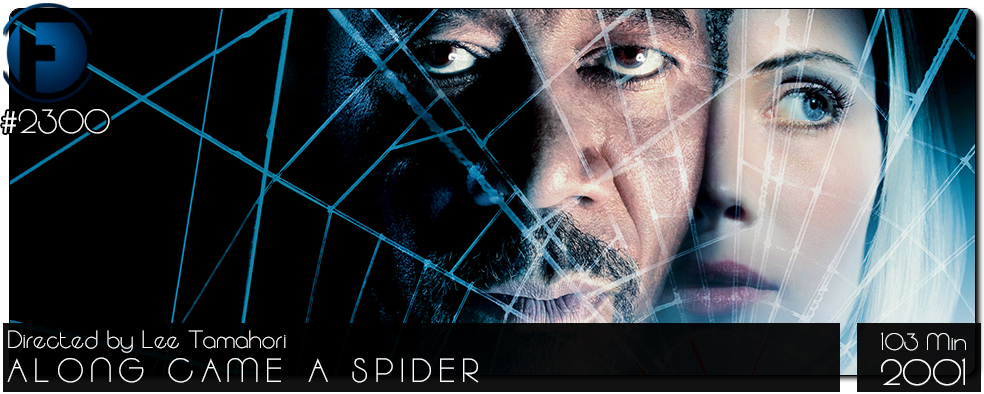Movie Review – Along Came A Spider
Principal Cast : Morgan Freeman, Monica Potter, Michael Wincott, Dylan Baker, Mika Boorem, Billy Burke, Anton Yelchin, Jay O Sanders, Michael Moriarty, Penelope Ann Miller, Anna Maria Hosford, Ocean Hellman, Samantha Ferris, Kim Hawthorne.
Synopsis: When a senator’s daughter under Secret Service protection is kidnapped from a private school, detective Alex Cross investigates the case even though he’s recovering from the loss of his partner.
********
Furtive detective-thriller escapades always take on a more cerebral tone with the calming presence of Morgan Freeman, no matter how convoluted the plot, or derivative the narrative. Director Lee Tamahori, cresting a wave of Hollywood interest following his breakout film Once Were Warriors in 1994, was handed all manner of projects after moving Stateside in the late 90’s, including the Anthony Hopkins thriller The Edge, the final Pierce Brosnan Bond outing Die Another Day (2002), and this, the James Patterson novel-adaptation of Along Came A Spider. A loose sequel to Kiss The Girls, this film sees Freeman and co-star Monica Potter trying to locate the whereabouts of a kidnapped Senator’s daughter, played by Mika Boorem, and while the story lacks the intellectual intrigue of the previous instalment there’s just enough illogical twists and turns deviating from Patterson’s novel to keep casual audiences intrigued. A kidnapping film generally plays out one of two ways – the hero rescues the victim and kills the bad guy, or the hero doesn’t rescue the victim and must try to locate them using remaining clues after killing the bad guy. This film somehow manages to do both at the same time.
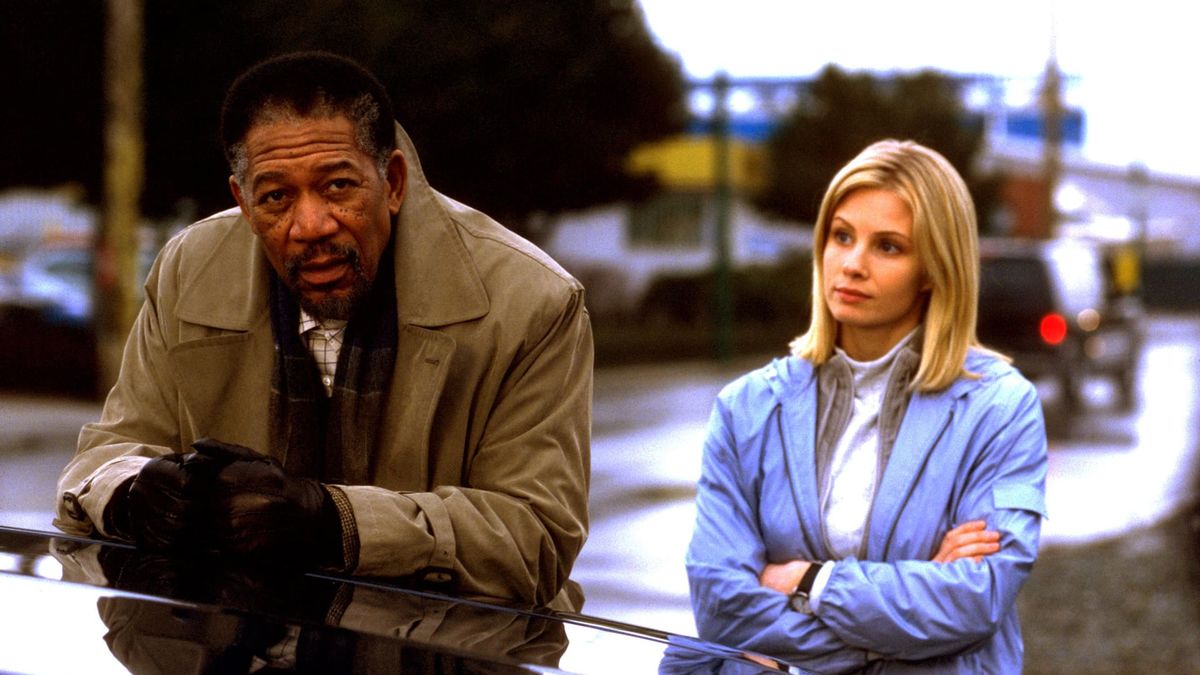
Freeman plays Detective Alex Cross, who is in retirement following the brutal death of a former partner. He is drawn into a game of cat and mouse with kidnapper Gary Soneji (Michael Wincott), who has snatched young Megan Rose (Boorem) – daughter of US Senator Hank Rose (Michael Moriarty) and wife Elizabeth (Penelope Ann Miller) – ostensibly for reasons unknown. Cross, teaming up with Secret Service Agent Jezzie Flannigan (Monica Potter), tracks the clues to Soneji and Megan’s whereabouts but through duplicitous motives Soneji always seems to be one step ahead. As the time ticks away and deadlines pass, Cross and the FBI, led by Agent McArthur (Dylan Baker) start to run out of time before all hope is lost.
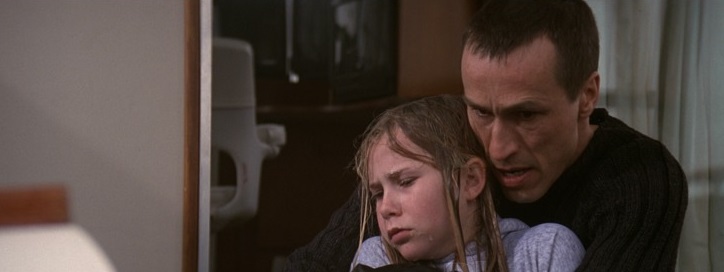
Along Came A Spider is astoundingly silly. There are chasms where plot logic should be, and a number of jawdropping twists that, when you sit down and reflect on them, make no sense whatsoever, and even look positively stupid. All in the name of hoodwinking the audience, I guess. Along Came A Spider comes a few years after the release of potboiler thriller Ransom (directed by Ron Howard and starring Mel Gibson), a film that reset the bar on just how tense one might make a kidnapping film if one really tried; Lee Tamahori, along with screenwriter Marc Moss, have butchered the kidnapping premise and turned it into a far too pedestrian cat-and-mouse game of wits, without allowing Freeman’s dependably calm Alex Cross, nor Michael Wincott’s slowly unravelling Soneji, to fully flesh out their characters before sticking in the knife and giving it a big old twist. In many ways this film follows a similar template to the Clint Eastwood Presidential assassination thriller In The Line of Fire, notable for showing us who the bad guy is early and often, and allowing us to get a sense of their motivations or potential for harm. Here, Wincott’s Soneji seems ill-focused with his mission, a confusing blab of psychobabble about wanting to be remembered for what he does and needing Cross to be the one to lionise him… or something. And Lee Tamahori isn’t Wolfgang Peterson, either, which doesn’t help. Tamahori lacks the grace to really sink into the why and who of the story, rather than fairly generic action and puzzle solving.
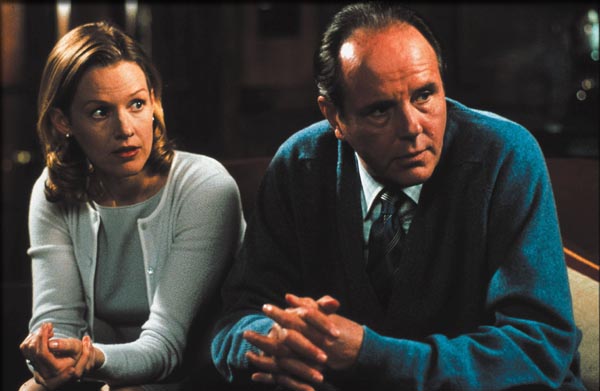
The film has any number of dated inconsistencies with logic working against it, from the incredible infinite-zoom of Y2K-era PC cameras to the clunky use of GIF’s as secret encoding files for kids to pass notes to each other in school, to say nothing about the inclusion of a subplot involving the child of the Russian Prime Minister – the kid is played by a very young Anton Yelchin, who would go onto become Checkov in the JJ Abrams Star Trek franchise before his untimely death in 2016 – which seems to come from nowhere and is explained away with about half a line of dialogue, despite occupying a considerable amount of screen time in the second act. Freeman elevates the generic plot and bland dialogue as best he can but not even he can escape the mediocrity with which the material lingers on screen, while a decent supporting cast, including Penelope Ann Miller, Dylan Baker, Billy Burke and Michael Moriarty, all appear to be going through the motions. Monica Potter’s enigmatic Secret Service agent, who let’s face it is absolutely shit at her job, provides an expository foil for Cross’s continual plot descriptions, and she’s corn-fed wholesome but not particularly remarkable.
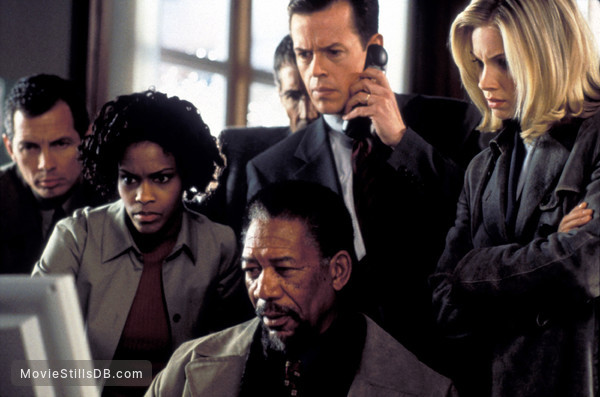
The other thing about the film is that not enough time or room is given for the emotional weight of the film’s central kidnapping plot to develop before, whoosh, Cross is off to crime scene number four and poking his nose at hugely convenient clue-porn. I say clue-porn only because apparently a Hollywood film Detective doesn’t need to do much other than walk into a room and spot a thing nobody else has noticed – and usually it’s a crucial clue upon which the plot collapses if it isn’t spotted – and in this film it’s all-Cross, all the dang time. I get that he’s the world’s greatest criminal psychologist or something but surely, surely the rest of the FBI and law enforcement have smart people that can help? In any case, the pacing of the film makes it impossible for the central characters to really grow into fully fleshed out human beings, the kind of characters audiences can empathise with or understand at a basic human level, which mitigates the impact of the overall story. Cross, who is given a significant emotional obstacle in the film’s opening sequence, never really taps into that for the remainder of the film, and I found that a baffling creative choice. If you’re going to give the main character an emotional arc, you can’t just start it and then stick it in a cupboard: you have to complete the arc. Tamahori seems to have forgotten to do that.
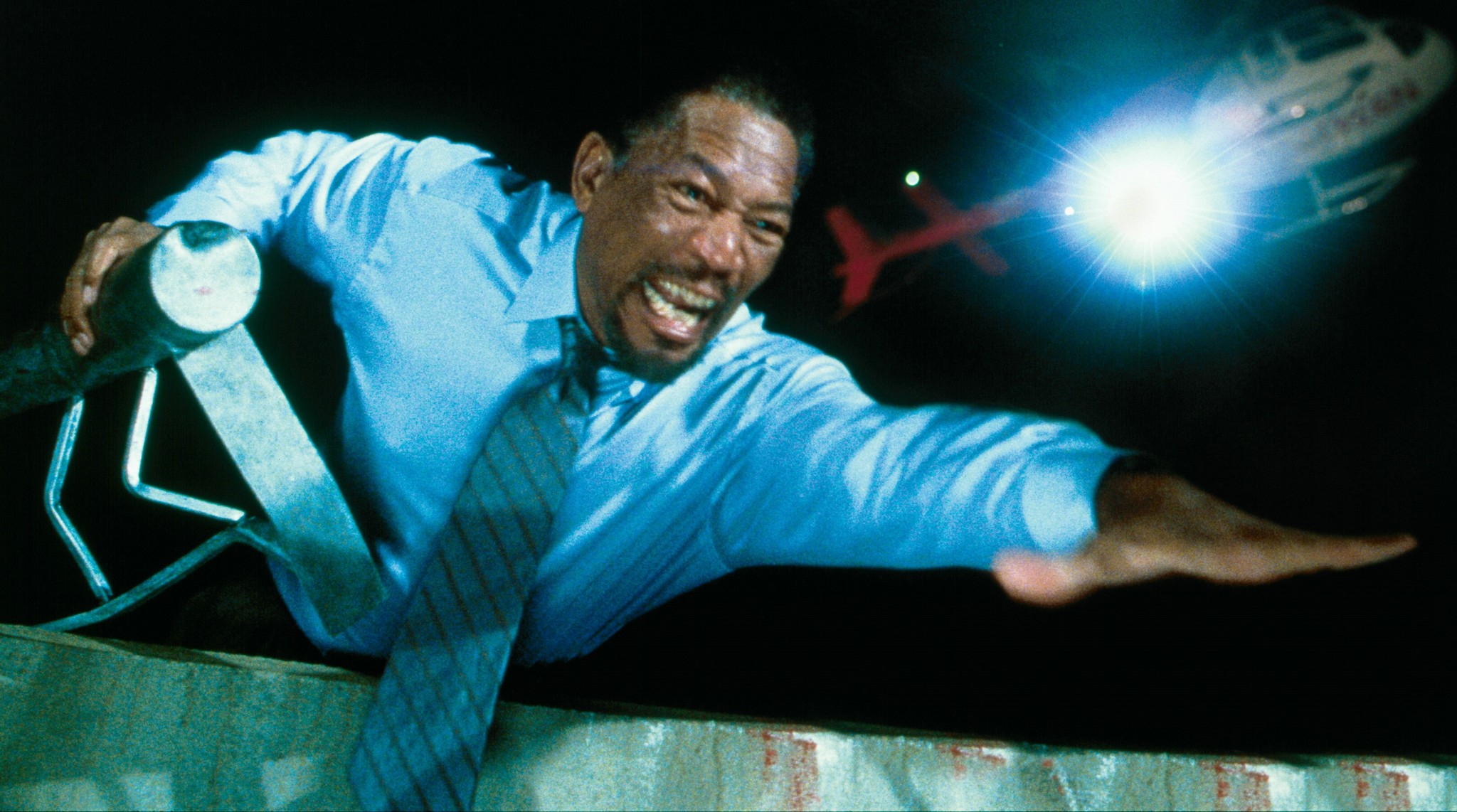
One of the big things about Along Came A Spider is the third act super-twist, a plot revolution so massive (apparently) it’s borderline insane. The film takes a large leap from plausibly realistic (unless you count Wincott’s apparent ability to wear facial prosthetics at a kids school for two full years without being uncovered as a sham!) into absolute absurdity with a last-act swerve by the writer; Tamahori does his best to sell it but the viewer is left agog at how they managed to be so hoodwinked without even a sniff, undeservedly so. The twist then turns into a third plot twist that will have even the toughest Law & Order criminologists guffawing softly to themselves, it’s so dumb. The key to any great villain, to any good bad guy plot, is believability or at least verisimilitude, and the film’s careful attempts to craft Wincott’s Soneji as the mastermind feel kneecapped by what the film tries to do in the third act. It’s laughable, and boy oh boy, did I laugh.
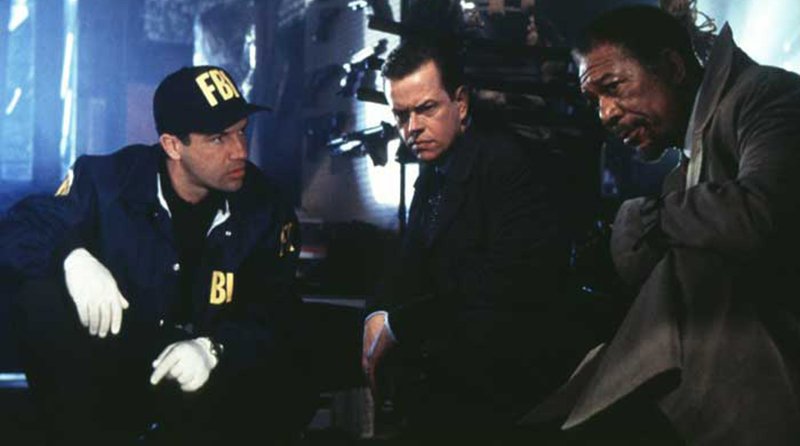
Along Came A Spider is a silly, generic detective thriller with throwaway dialogue, nonsensical plot twists and intentionally protracted mediocrity. Tamahori and his team try to turn Alex Cross into some continent-traversing superhero but forget that he’s a thinking man’s Detective, and that he needs time to process things before “eureka” moments arrive to propel the story forward. A solid ensemble and Freeman’s astute performance in the title role can’t overcome inherent issues with the story, however, leaving the film to be as forgettable as it is silly.

